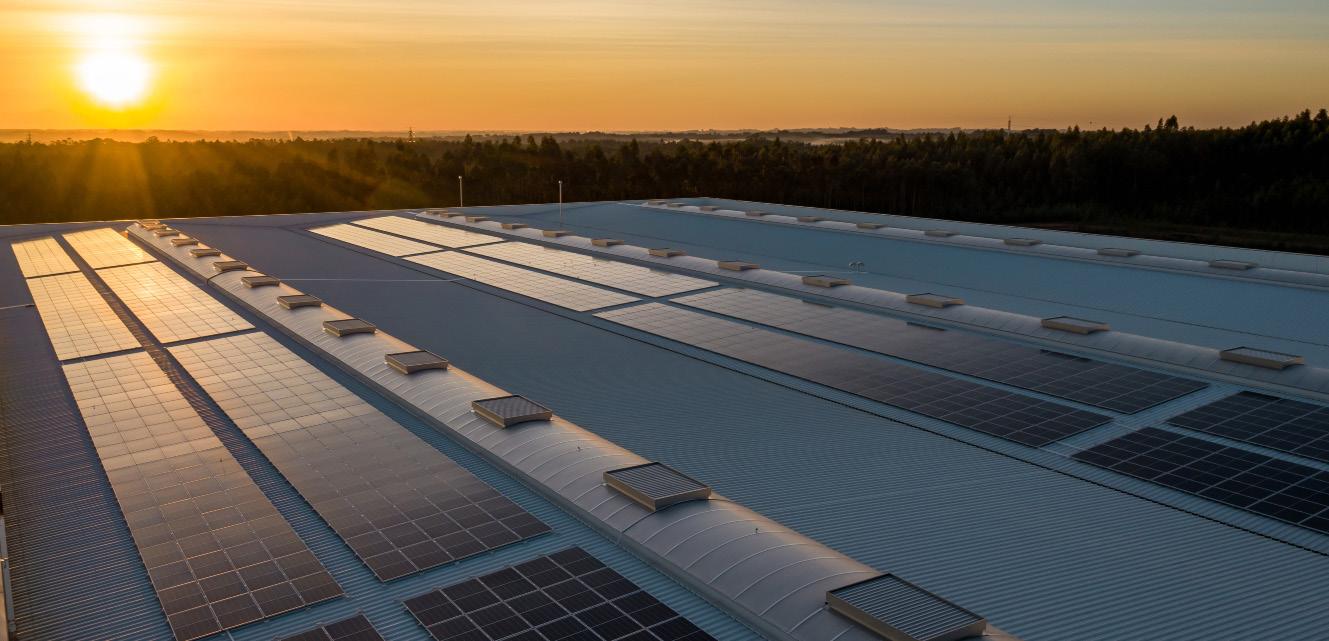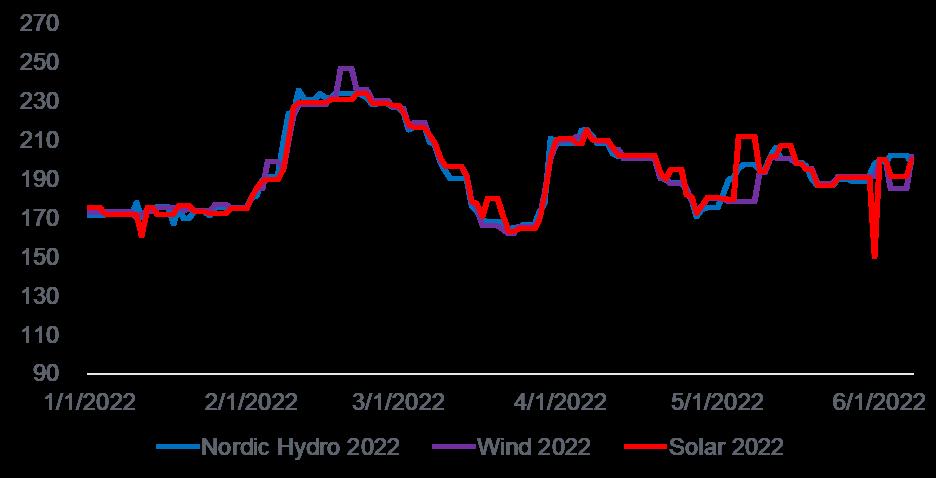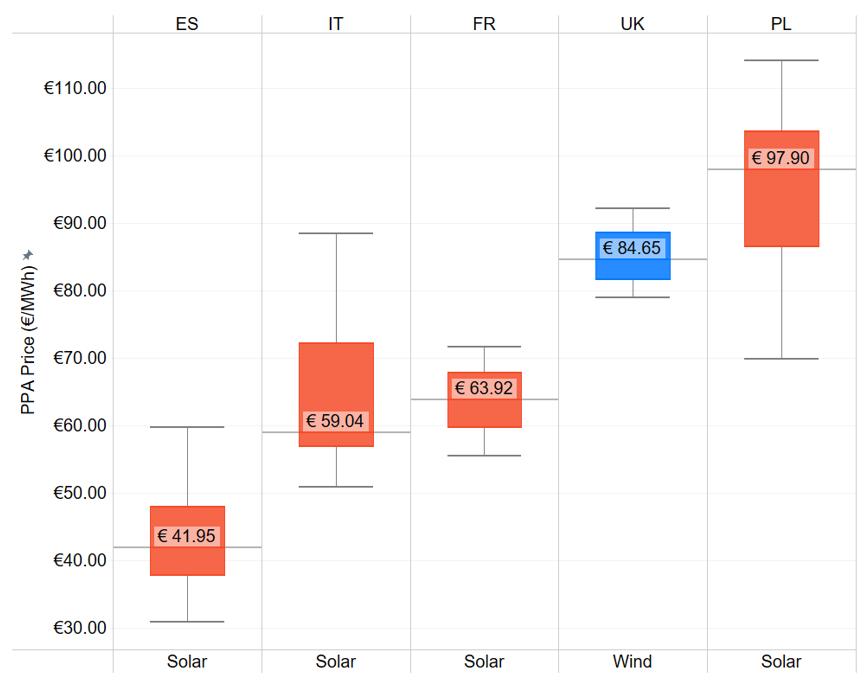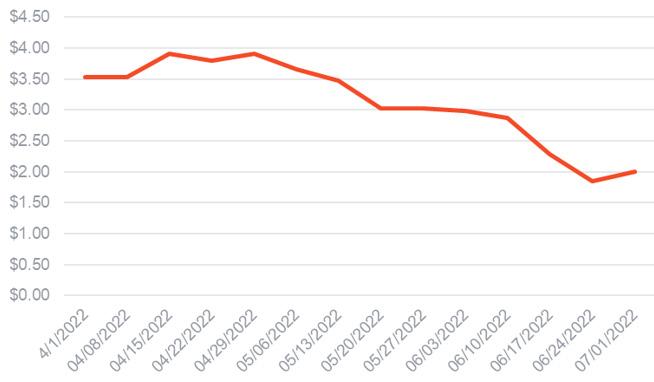
1 minute read
Introduction
While a growing list of corporations expanded their renewable energy procurement goals in Q2, they continue to face high prices for wind and solar globally.
Buyers navigating this challenging landscape are working to understand the headwinds faced by developers and think creatively about how to move ahead and support the deployment of new renewable energy projects.
The quarter saw U.S. wind and solar PPA price increases across all regions, driven by global supply chain issues and policy uncertainty. Various line items in projects’ financial models are seeing price pressures, including cost of labor, raw materials, and shipping. Long-term wholesale energy market price forecasts have not risen comparably, causing the expected cost of a PPA to be significantly more expensive for a buyer today than in the past.
A similar scenario has played out in Europe, with PPA prices rising due to the geopolitical situation, supply chain issues, raw material price increases, and growing inflation. Despite these headwinds, demand for PPAs from corporate offtakers continues to rise. However, increased demand has not matched supply of projects, strengthening developers’ positions within the market.
In the U.S., inventory of projects on the market dropped by 30% in Q2, while anticipated online dates for marketed projects continue to shift later. Recent executive actions by the Biden administration are expected to help solar project developers bring projects back onto the market in the coming quarter, as the action provided some support for sourcing imported panels. However, supply chain-driven constraints and interconnection queue delays are causing some projects to face schedule delays of a year or longer.
U.S. REC prices fell to their lowest point in over a year, while the carbon offset market in both the U.S. and Europe has slowly recovered. With officially tagged carbon removal credits now available, developers and vendors are able to price tropical forests and nature-based removals at a higher price than they had previously, due to significant demand in this formalized category.








